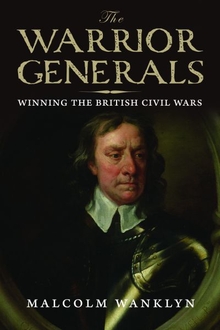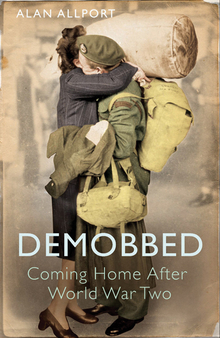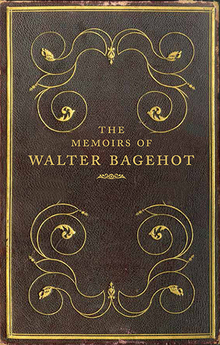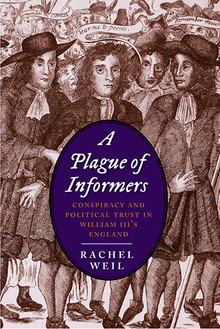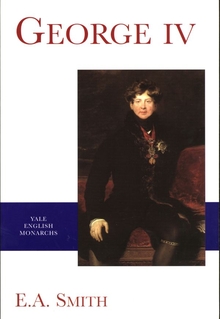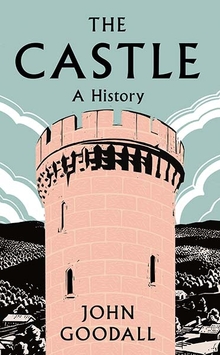Hubbub
WARNING
You are viewing an older version of the Yalebooks website. Please visit out new website with more updated information and a better user experience: https://www.yalebooks.com
Filth, Noise, and Stench in England, 1600-1770
Emily Cockayne
A not-for-the-squeamish journey back through the centuries to urban England, where the streets are crowded, noisy, filthy, and reeking of smoke and decay
Modern city-dwellers suffer their share of unpleasant experiences—traffic jams, noisy neighbors, pollution, food scares—but urban nuisances of the past existed on a different scale entirely, this book explains in vivid detail. Focusing on offenses to the eyes, ears, noses, taste buds, and skin of inhabitants of England’s pre-Industrial Revolution cities, Hubbub transports us to a world in which residents were scarred by smallpox, refuse rotted in the streets, pigs and dogs roamed free, and food hygiene consisted of little more than spit and polish. Through the stories of a large cast of characters from varied walks of life, the book compares what daily life was like in different cities across England from 1600 to 1770.
Using a vast array of sources, from novels to records of urban administration to diaries, Emily Cockayne populates her book with anecdotes from the quirky lives of the famous and the obscure—all of whom confronted urban nuisances and physical ailments. Each chapter addresses an unpleasant aspect of city life (noise, violence, moldy food, smelly streets, poor air quality), and the volume is enhanced with a rich array of illustrations. Awakening both our senses and our imaginations, Cockayne creates a nuanced portrait of early modern English city life, unparalleled in breadth and unforgettable in detail.
Modern city-dwellers suffer their share of unpleasant experiences—traffic jams, noisy neighbors, pollution, food scares—but urban nuisances of the past existed on a different scale entirely, this book explains in vivid detail. Focusing on offenses to the eyes, ears, noses, taste buds, and skin of inhabitants of England’s pre-Industrial Revolution cities, Hubbub transports us to a world in which residents were scarred by smallpox, refuse rotted in the streets, pigs and dogs roamed free, and food hygiene consisted of little more than spit and polish. Through the stories of a large cast of characters from varied walks of life, the book compares what daily life was like in different cities across England from 1600 to 1770.
Using a vast array of sources, from novels to records of urban administration to diaries, Emily Cockayne populates her book with anecdotes from the quirky lives of the famous and the obscure—all of whom confronted urban nuisances and physical ailments. Each chapter addresses an unpleasant aspect of city life (noise, violence, moldy food, smelly streets, poor air quality), and the volume is enhanced with a rich array of illustrations. Awakening both our senses and our imaginations, Cockayne creates a nuanced portrait of early modern English city life, unparalleled in breadth and unforgettable in detail.
Emily Cockayne is a senior lecturer in Early Modern History at the University of East Anglia. She is the author of Rummage: A History of the Things We Have Reused, Recycled and Refused (Profile, 2020), Cheek by Jowl: A History of Neighbours (Random House, 2012) and Hubbub: Filth, Noise & Stench in England (2007), cited by Toni Morrison as an important source for A Mercy.
"This book inhabits a grubby and squalid world, truffling out details that are vivid, colourful and sometimes downright nauseous. It's a veritable feast of filth and foulness, and I loved every minute of it."—Christopher Hart, Literary Review
"Taking us by the hand, Emily Cockayne leads us through the streets of early modern London—Manchester, Bath and Nottingham, too—and shows us a series of Hogarthian prints come to life. . . . Cockayne has dug deep into the archives and come up with a hundred little snatches of story that show ordinary people bustling about their business and taking care not to step in something nasty. Mostly they don't succeed."—Kathryn Hughes, The Guardian
"The pot pourri that Emily Cockayne has put together in this compendium of sensual unpleasantries reminds us that life in early modern England was not always the carnival of topsy-turvy pleasures we like to imagine. . . . This is a book about vile bodies and personal space in the days before privacy was invented. Or, as Emily Cockayne puts it, about 'how people were made to feel uncomfortable by other people—their noises, appearance, behavior, proximity and odours.' . . . But Hubbub is no Whiggish tale of progression . . . it is a tale instead of how humans cope and don't cope with annoyance, how we get used to living in difficult conditions and why we continue to complain even when conditions improve."—Frances Wilson, The Sunday Telegraph
"For the citizens of London, Oxford, Bath and Manchester in the 17th and 18th centuries, life was not merely nasty, brutish and short. As Cockayne's chapter titles record, it was ugly, itchy, mouldy, noisy, grotty and dirty. . . . Cockayne tells the story of hubbub through a variety of sources. Some are court records . . . her main sources, though, are diarists. . . . [An] enjoyable wallow in the land of Cockayne."—David Honigmann, Financial Times
"Hubbub is an engaging read. Cockayne not only appears fascinated by her material but clearly revels in the language of the period. One of the book's strengths is the insight it offers into the lively rhetoric of various journalists, diarists, and chroniclers. . . . Whether Hubbub is best described as a history of the senses of the body, or as a microstudy of daily life, it compiles—and, with the help of the index, even organizes—an impressive amount of research."—Bookforum
"An amusing and occasionally gag-inducing attempt . . . to portray the grittier and grottier side of life in England in the mid-1600s through the 1700s."—Christopher Shea, Boston Sunday Globe
"Cockayne has an eye for the riveting and repulsive detail, all of which leave one mightily relieved to be living now rather than 300 years ago."---Jeremy Lewis, The Mail on Sunday
"To read Hubbub is to be transported back to that sense of childlike wonder in everything gross and revolting...One of the many delights of this jolly, anecdote-laden history is that, just when you think it can't get any worse, it does."---Melanie McGrath, The Evening Standard
"This is not a book to read if you are feeling fragile. Taking us by the hand, Emily Cockayne leads us through the streets of early modern London --Manchester, Bath and Nottingham, too -- and shows us a series of Hogarthian prints come to life...[there is] great pleasure that comes from reading about a world that is too familiar and yet so quaintly out of reach."---Kathryn Hughes, The Guardian
"...a thoroughly entertaining read, one whose greatest pleasurers lie in the extraordinary accumulation of incidental detail to be found in its teeming pages."---Andrew Holgate, The Sunday Times
"Hubbub can usefully be read as the prehistory of everything from the Nimby attitude to new housing, to the curious tension on the Tube."---Brian Dillon, The Daily Telegraph
"Hubbub is a testament to a human spirit which created masterpieces by candlelight. Time and time again it displays the ingenuity, humour -- and profit motive -- which surmount obstacles to the quest for greater comfort. Here is a reminder that, in our own time, much of the world endures much worse."---Christopher Hawtree, The Independent on Sunday
"[Cockayne's] meticulous research is lent wit and energy by the contemporary accounts of such first hand witnesses as Tobias Smollett, Samuel Pepys and author Margaret Cavendish, as well as allowing her to play with some fabulously bawdy and colourful language, as a result of which, shocking though it is, Hubbub is also extremely funny."---Melanie McGrath, The Scotsman
"...hugely enjoyable...the horrors of city living [are] so vividly brought to life in this scholarly and readable book." --- Andrea Stuart, The Indepedent
"This volume is a useful corrective to unrealistic modern suppositions about urban life in jolly old England as a frolicsome idyll of handsome beaux and Jane Austen heroines. . . . Hubbub is revelatory and . . . amusing."—David Aikman, Weekly Standard
"[a] humane and erudite work. The reader cannot help but find a shared humanity between the early modern age and our own." -Clare Clark, Times Literary Supplement
"One of the great virtues of [Cockayne's] work is the sense of how brute material realities affected ordinary people's lives." -Ian Archer, Times Higher Education Supplement
"Hubbub is an absolutely disgusting journey through the streets, homes, markets, beds and privies of early Modern England. And it's utterly fascinating. You may want to shower between chapters, but it's worth it. . . . Hubbub is really a masterful book."—PhiloBiblos
"[An] enchantingly icky new book."—Alexandra Mullen, New Criterion
"Rich in primary sources . . . Hubbub is a wonderfully lively account of a blessedly bygone time."—I.D. International Design Magazine
"A putrid, squelching, stinking and statistically satisfying grope through the back-passages and byways of England between 1600 and 1770 that makes modern-day problems like MRSA look pretty sortable." - Philippa Stockley, Evening Standard
"This powerful, convincing antidote to any inclination to wax romantic about life in early modern England, whether private or public, looks at London, manchester, Bath and other cities, and discusses how and why so much of life was ugly, smelly, dirty, flea infested, and garbage strewn. . . . The book includes many powerful anecdotes. . . . Highly recommended."—Choice
"Hubbub offers a treasure-house of material for scholars, and it will make an ideal present. It makes us reflect too on the parallels as well as contrasts between our own age and the past."—Bernard Capp, Renaissance Quarterly
"Cockayne manages to do what historians of the senses often miss: she locates changes in perception in changes in material culture and specific historical context. . . . No review can do justice to the extraordinary research and empirical texture of [this] book."—Mark M. Smith, Winterthur Portfolio
"Presents aspects of daily life that even early modernists are unlikely to know, and it tells great stories."—Mary E. Fissell, Isis
"A powerful and convincing antidote to any inclination to wax romantic about life, wheter private or public, in early modern England."—Joel T. Rosenthal, Project Muse
"Cockayne's prose is fluid, making this work an enjoyable read for a broad audience. For the seasoned scholar her research into the crude and disgusting is an important thematic counterpoint to focus on more refined aesthetics. . . . Hubbub presents rich, new material for English urban historians but also is an essential addition to the histories of the environment and the senses. It does much to further our understanding of the connections among pollution, disruption,and development of English urban life."—Matthew Milner, Journal of British Studies
"A significant contribution to our knowledge of preindustrial life. . . . Cockayne's prose is clear, free of jargon, and interspersed with rich quotations drawn from a wide array of primary sources. . . . An excellent study of English urban life in all its filth and stench."—A. Roger Ekirch, American Historical Review
ISBN: 9780300254761
Publication Date: July 20, 2021
Publication Date: July 20, 2021
368 pages, 5 1/2 x 8 1/2
50 b/w illus.
50 b/w illus.


